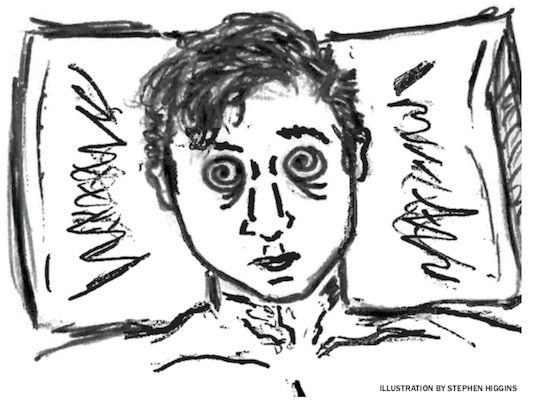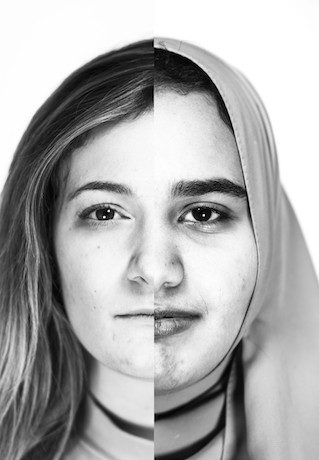
In late March we all received email notification of a sexual assault that occurred on campus. As usual, we got barebones information–a date, a time, a general location and news about whether the assailant had been identified. It was important to have that news, but it also generated some fear because that was the last we heard about the assault.
The next day, over an elegant brunch in the Green Mountain Dining Room, a few friends and I discussed the vague nature of notifications of this sort. Protecting the identity of the person who reports being assaulted is crucial. But we need more information. Who attacked her? They may threaten others on campus. If they are convicted, how do we know they will be removed, or at least not repeat the offense?
Are we walking among rapists? If information is power, why can’t the college give us a little more power in protecting ourselves from falling victim?
We know that the survivor of a sexual assault is not to blame, the respondent is. Yet, in the case of repeat offenders, is the college at fault as well?
We never learn whether the accused was convicted, whether the case progressed to the police, and most certainly not who attacked. This approach leaves women feeling unsafe and unsettled. What if the next person they talk to at a party is the same rapist someone reported only a week before? It has happened, see “If only I had known,” below. Despite hopes of greater transparency through initiatives like the Bias Response Team and publication of Clery Reports, it feels as if the college continues to hide important information which students need to protect themselves.
This January The New York Times referenced two studies of male students who admitted to behaviors that met the definition of rape or attempted rape. In one study 63 percent admitted that they behaved that way more than once; in another study 25 percent admitted the same behavior. Repeat offenders are a frightening, but avoidable reality.
How are students expected to protect themselves when they are not completely informed about the company they keep? If offenders knew people would find out about it, would they refrain?
Sexual assaults handled at the college level become part of students’ academic records and remain confidential under The Family Educational Rights and Privacy Act (FERPA). Unless a sexual assault is reported to local police, notifying the campus of who committed sexual assault is legally equivalent to releasing someone’s grades.
Catherine Welch, a Title IX deputy at St. Michael’s, said that the college does everything in its power to walk alongside both students involved in reported incidents. Welch assured me that students who deserve to be dismissed will be dismissed. She also acknowledged that because many assaults are never reported, “We know that we work with a very small percentage of [cases].”
Welch stressed that while the administration may not always be at liberty to disclose further information with students, they work tirelessly to ensure that the case comes to a close, if that is what the complainant would like. “If it comes to the level in which a person isn’t suspended or dismissed from the college, none of our conduct records are public records–just like we aren’t publicizing what students are sent off to Act 1.” Welch said.
OK, but I fail to see how drunk students being detained for throwing up in a Joyce gender-neutral bathroom or getting a little too rowdy outside of the 300s, can compare to someone who has sexually assaulted another student’s body.
The small size of St. Michael’s leads to an “everyone knows everything about everyone,” assumption, therefore the fact that we have not heard of that many dismissals from the college is unsettling, especially in the wake of 14 reported sexual assaults over the course of 2013-2015. If they remain on campus how can we be sure that they won’t repeat their crime?
Welch said that the college focuses on preventative education, providing events and opportunities for students to learn more about protecting themselves. She also emphasized that the college works closely with both students involved.
Granted, revealing names would not solve all problems and doing so could cause other problems, including the possibility of a “Salem Witch Hunt Effect,” in which people would be falsely, publicly accused of sexual assault. Furthermore, the nature of sexual assaults are not always cut and dry. If the incident isn’t clearly concluded, the administration has even less ground to publicize who is involved. Also, revealing the identity of the respondent leads to more of a risk of revealing the complainant. “I don’t feel the need to protect the people who do those things, but I do feel a need to protect the people they do those things to,” one friend told me.
We get it–names will never be revealed. The next time an alert about a sexual assault comes to our email, all we can do is have faith in the notion that the college will dismiss someone if need be, and in the event that they do not, they truly “walk alongside,” both students to be sure that they understand the situation. “When one of these reports comes in I am spending hours, tens and tens of hours, like 80 hours, working on these cases, making sure students feel supported, and never ever ever sweeping anything under the rug. That’s how things happen here at St. Mike’s, making sure that we’re never writing anything off, we’re investigating things fully, and trying to be really upfront with students in saying ‘here’s what we can do,’” Welch said.
Aside from faith that the situation will be thoroughly handled, we too must take a preventative approach–actually paying attention to the education initiatives provided for us, and continuing to watch our own, and our friends backs.
If only I had known
If you asked 10 year old me what I thought my first kiss would be like, I would have answered somewhere along the lines of “like a fairytale princess meeting her happily ever after.”
It had been something I looked forward to sharing with someone I loved very much who loved me the same.
If you then told 10 year old me my first kiss would be stolen by a guy who felt entitled to my body, I would be confused.
How could I let myself get into that sort of situation?
If you then told 10 year old me this wasn’t the first time he had felt entitled to a woman’s body, you would taken all oxygen from my lungs.
How could I not have known?
How could I not have known he had forced a woman before, and been to the review board before? How could I not have known? But how could I have known? No one ever told us. No one ever told me.
Why didn’t you tell 20-year-old me back in January that he had done this before?
If I had known, I would never have let myself be alone with him. He never would have stolen my first kiss, touched my entire body or made me touch him, all unwillingly.
If only I had known.
If only I had known, I wouldn’t feel dirty and used, tossed around like an insentient doll.
If only I had known, I wouldn’t be incessantly replaying the events of that day in my head to find where I could have prevented it, the same as how I did when I didn’t sleep a wink that night while he slept soundly.
And, if only you had told me, I could have saved that kiss I had long hoped for for someone I loved, who loved me back.
Submitted by a student from the class of ‘18, who asked that her name be withheld.


